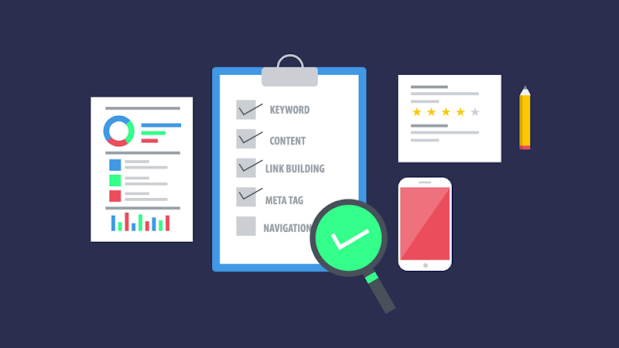As a website owner, you know that ranking high in search engine results is important for driving traffic to your site. But what if your website doesn't appear in search results at all? This is where an SEO audit comes in. An SEO audit is a comprehensive analysis of a website's search engine optimization-related aspects. It can uncover technical issues that are preventing the website from being indexed by search engines, reveal on-page optimization opportunities, and help identify competitor strategies.
In this article, we'll take a look at what an SEO audit is, why you should perform one, and how to conduct one. By the end of this article, you'll have all the information you need to get started on auditing your own website!
What is an SEO audit?
An SEO audit a comprehensive analysis of your website's search engine optimization-related aspects. During an SEO audit, various technical and on-page SEO factors are analyzed and issues are identified that could be holding your website back from achieving better search engine rankings. A good SEO audit will also provide recommendations on how to fix the identified issues so that your website can start ranking higher in search engine results pages (SERPs).
Why should you perform an SEO audit?
The modern business landscape is highly competitive. In order to stay ahead of the curve, it’s important to continuously evaluate and improve your website’s SEO. An SEO audit is the best way to do this.
An SEO audit will uncover any technical issues that are preventing your website from being indexed by search engines. Additionally, an SEO audit will reveal on-page optimization opportunities that you may not have been aware of. Finally, an SEO audit can help you identify competitor strategies. By understanding what your competitors are doing, you can adapt your own strategy to stay ahead of the competition.
Conducting an SEO audit is a comprehensive and detailed process. However, it's well worth the effort as it can help you improve your website’s ranking in search engine results pages (SERPs), which will result in more traffic and potential customers for your business.
How to conduct an SEO audit
Conducting an SEO audit doesn’t have to be complicated. By taking a few simple steps, you can uncover opportunities to improve your website’s ranking in search engines.
The first step is to identify which pages on your website need to be audited. A good place to start is with your most popular pages. You can also look at pages that are not performing as well as you’d like in terms of search engine ranking. Once you’ve identified the pages you want to audit, create a list of target keywords. These are the keywords you want your website to rank for in search engines.
Next, it’s time to check your website’s title tags and meta descriptions. These are the pieces of text that appear in search results when someone searches for one of your target keywords. Make sure that your title tags and meta descriptions are accurate and reflect the content of your page.
Finally, check your website’s speed. Search engines take into account how fast a website loads when determining its ranking. If your website is slow, consider making some changes to improve its speed.




Comments
Post a Comment